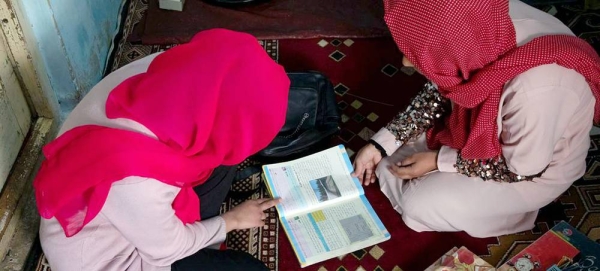
Secret schools established as girls are left with no accredited path to university
LONDON: Taliban policies on female high school education will become a de facto ban on women getting degrees, a Taliban spokesperson and university officials have told The Guardian.
After nearly a year out of school, girls will lack the documents required to enroll in higher education and the academic capacity to begin university courses.
“Automatically if we do not have high school graduates, we won’t have new female university students anymore,” said Maulawi Ahmed Taqi, a spokesperson for the Taliban’s Ministry of Higher Education.
“But I am hopeful that the ministry of education will come up with a policy and soon reopen the schools. Because we have realized that it is important, and the ban on girls’ education is temporary.”
Even if practical barriers to women entering higher education are removed, authorities are considering restricting them to degrees in healthcare and education, according to a source close to the Taliban leadership who spoke to The Guardian.
Afghan students without a high school diploma cannot take the “kankor” national university entrance exam required to enroll, even in private colleges.
Last year, the Taliban “graduated” female 12th-grade students, making them eligible for the exam if the new leadership were to hold one.
But it is unclear if the Taliban will issue “high school graduation certificates” to girls who should have completed them. Under Afghan law, they cannot take the entrance exam without one.
Even if women are allowed to participate, university admission officials are concerned about how far they will fall behind after being barred from school for nearly a year.
They are already disadvantaged among prospective university students, competing against men who have finished school.
While extra classes can help make up for a few missed months, girls who have not even completed 11th grade cannot be expected to progress to university classes, according to Dr. Azizullah Amir, president and founder of the all-female Moraa University.
He set up the university to educate female medics after his mother died from septic shock when she refused to see a male doctor about an infection.
All of its students and staff are women, which helps attract students from the most conservative regions. However, according to Amir, the institution risked being unable to admit new students.
“Even now we have time, if they restart classes, in the remaining months of the year we can graduate students, with more effort and support including intensive classes, but if it continues, then next year you won’t have students in the university, apart from those who graduated in previous years, which will be small numbers,” Amir said.
Online classes and illegal underground schools have allowed some girls to continue their education, but these efforts only reach a small percentage of the population.
Most secret schools are private initiatives, charging fees to at least cover their costs. But few families can afford them.
Streaming or downloading classes requires at least a smartphone and a large data package, which is out of reach for many of the girls.
Afghanistan"s new leaders have said they support women’s education as long as it adheres to their interpretation of Islamic regulations.
This includes near-complete gender separation, although male professors still teach some women"s classes due to a shortage of specialists.
Taqi cited ministry efforts to change schedules and reallocate buildings so that women could attend single-sex classes as evidence.
Some universities are now teaching men and women on alternate days.
“Our ministry is committed. We have plans, policies, procedures, and as you see, education in university is going on for both girls and boys,” he said.












